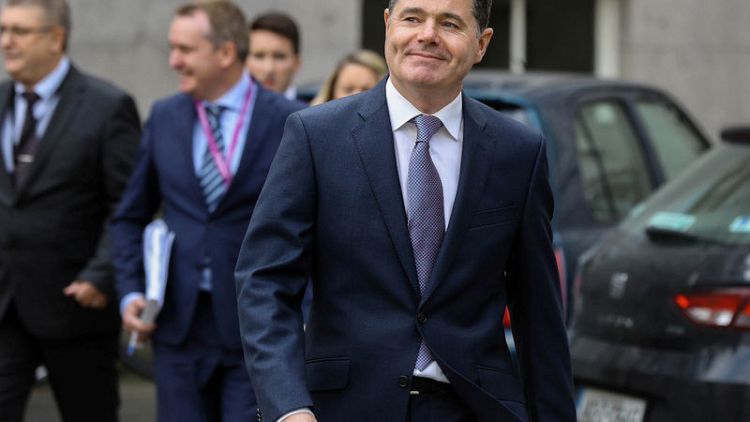By Padraic Halpin
DUBLIN (Reuters) - Proposals for how large multinationals are taxed around the globe must continue to recognise the substantial value-creating activity that happens in exporting countries like Ireland, the country's finance minister said on Thursday.
Tasked with shaping how century-old tax rules are rewritten, the Organisation for Economic Cooperation and Development (OECD) suggested this month that governments where the user of a big firm's product is located should have the right to tax a bigger share of the profit made by a company operating in another country
That could reduce the amount of revenue collected in low tax countries like Ireland where big internet firms - many of whom have their European headquarters there and are some of the country's biggest employers - can book profit and park assets like trademarks and patents.
In his first detailed response to the so-called Pillar One proposals, Finance Minister Paschal Donohoe said that while they represented progress, many significant questions remain and much detailed technical consideration was needed.
"To ensure continuity and stability it is important that any move in this direction recognises a number of well-established principles. In particular, the existing transfer pricing rules must remain at the heart of the global tax framework," Donohoe said in a speech at a tax conference.
"The significant and substantial value creating activity that happens in exporting countries like Ireland must continue to be recognised and rewarded. And finally, any change must be realistic in scope recognising that the consent and acceptance of all countries, large and small, is necessary."
Ireland, whose 12.5% corporate tax rate has helped persuade the likes of Google, Apple and Facebook to add tens of thousands of jobs to its 2.3 million workforce, has long had a bigger problem with the second track of reforms being steered by the OECD, which is aiming to come up with an internationally agreed minimum corporate tax rate companies cannot avoid.
"I remain to be convinced that the issue of addressing the tax challenges of digitalisation requires action in this area," Donohoe said, adding that any lasting solution must not come at the expense of fair and legitimate tax competition so crucial for smaller economies.
"Ireland was quick to recognise this and our policy of applying a flat rate to a very broad tax base which means that our nominal and effective rates are closely aligned, provides consistency and certainty in an uncertain world."
Donohoe said that while it was too early to quantify any potential cost to Irish corporation tax receipts that have more than doubled since 2012, it was only prudent to recognise there will be changes in where some profits of highly digitalised, consumer-facing businesses are taxed.
He said he believed the OECD's work would be successful.
"Difficult decisions will have to be made, particularly for small open, export orientated countries such as ours but we must engage and make our voice heard," he said. "Make no mistake, change is coming."
(Reporting by Padraic Halpin; Editing by Frances Kerry)



